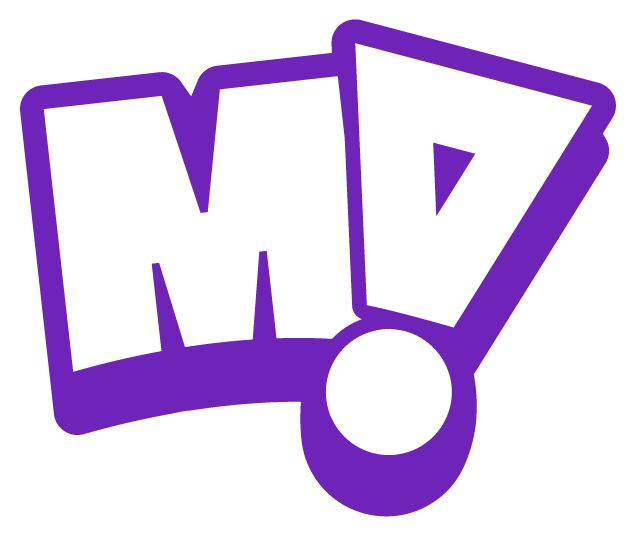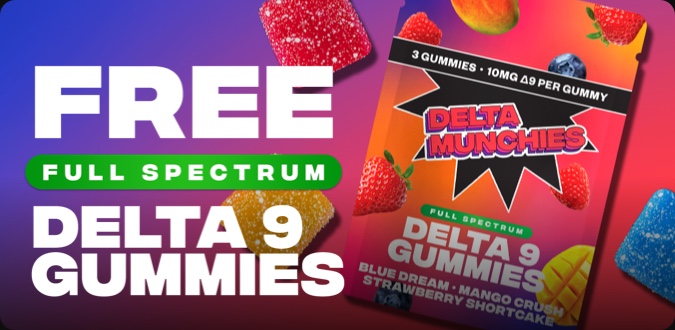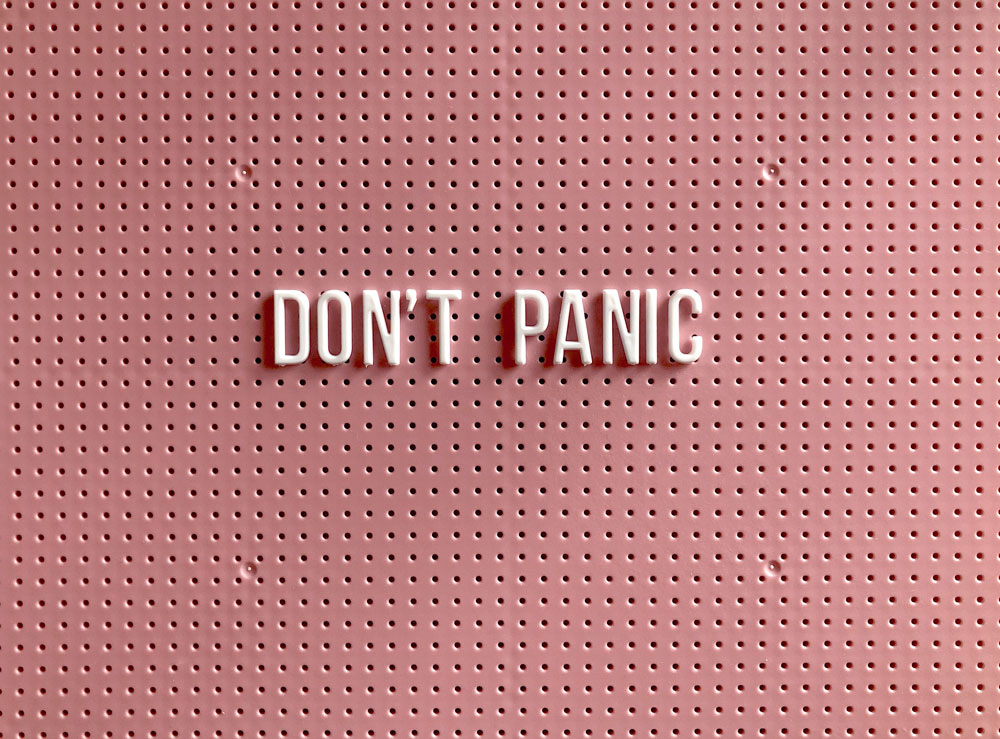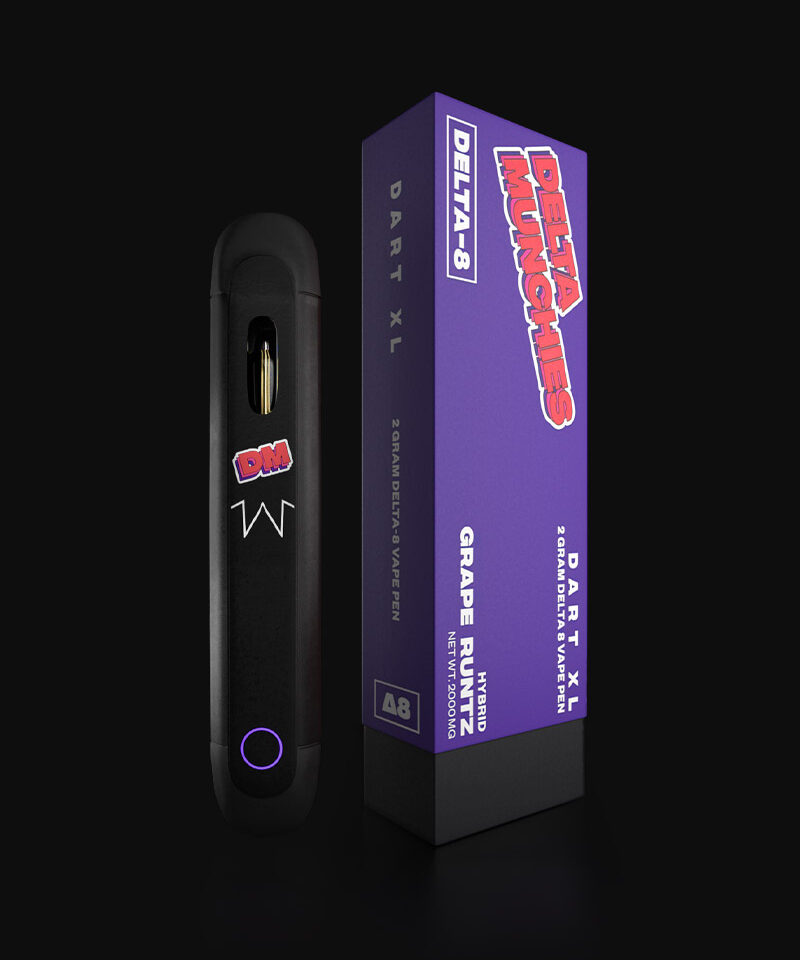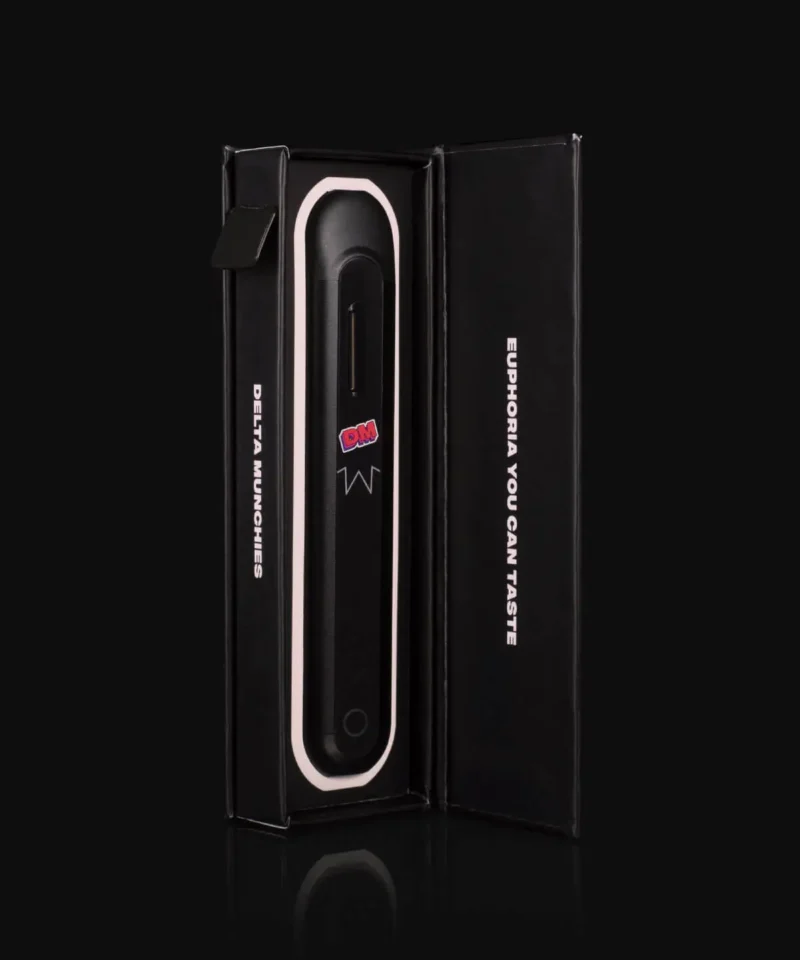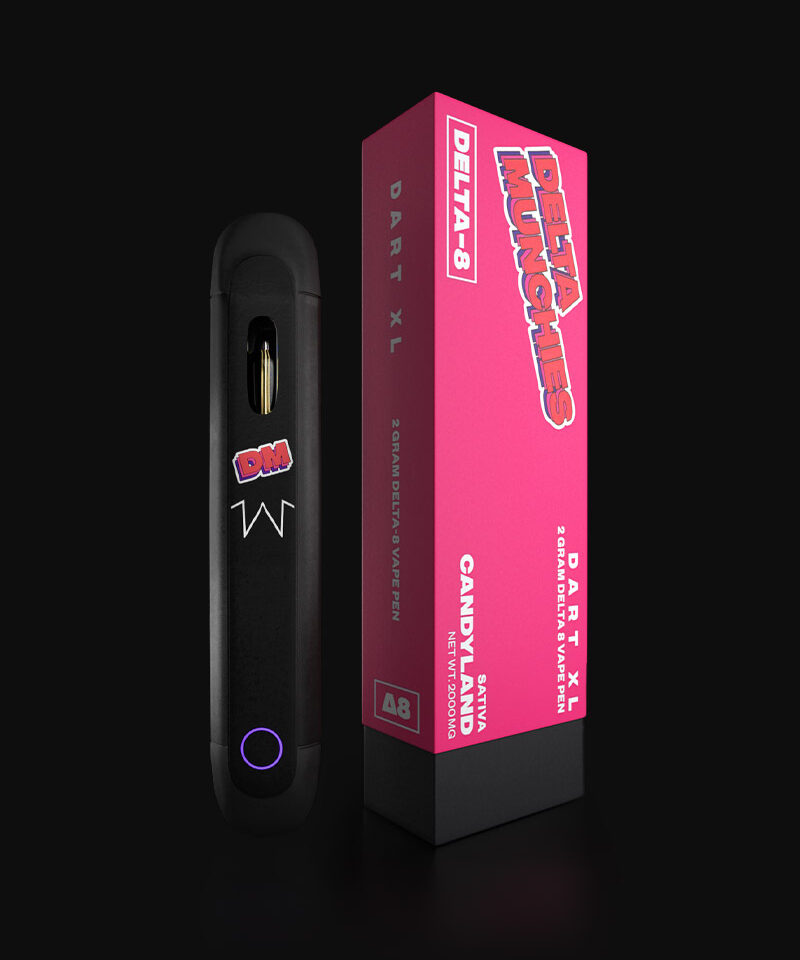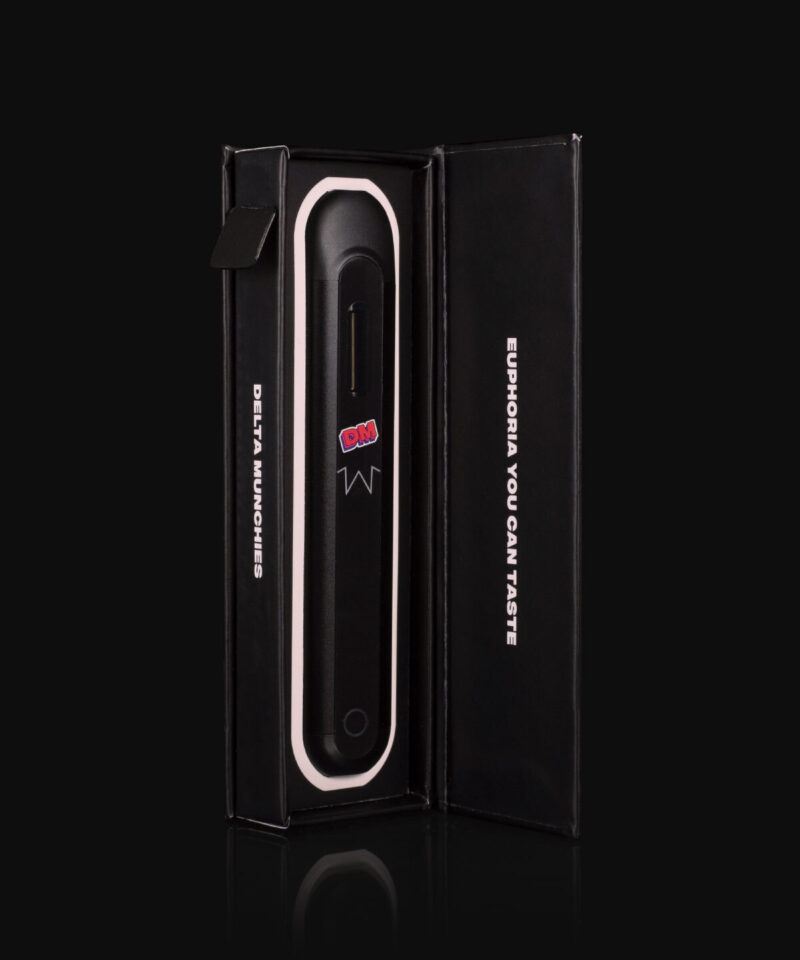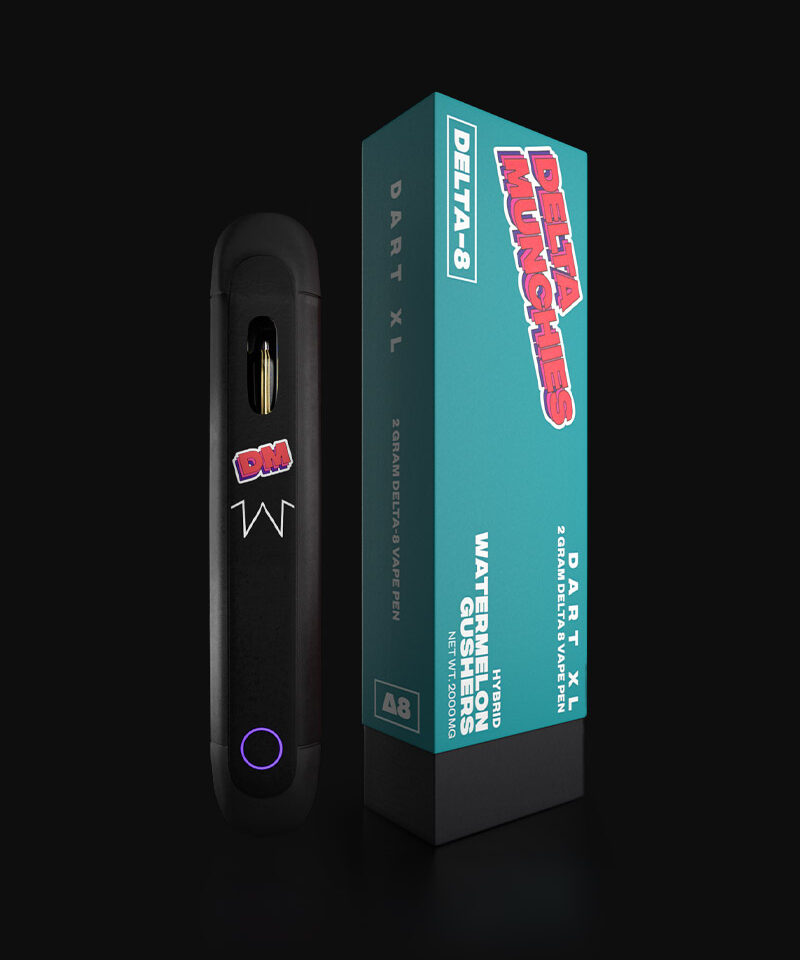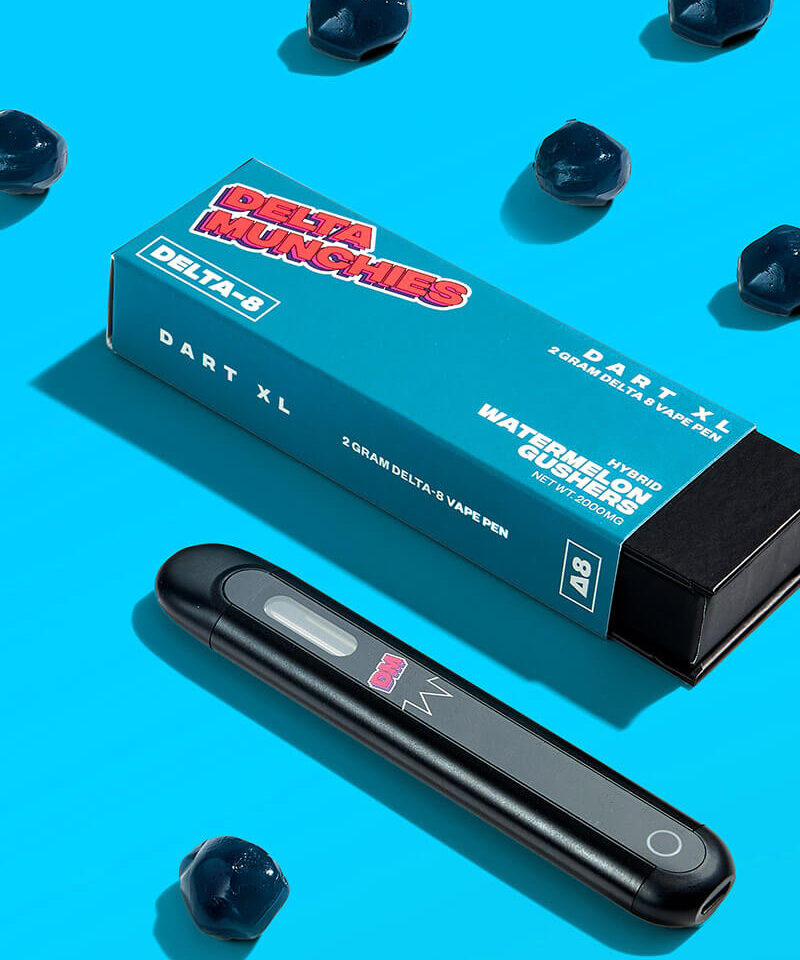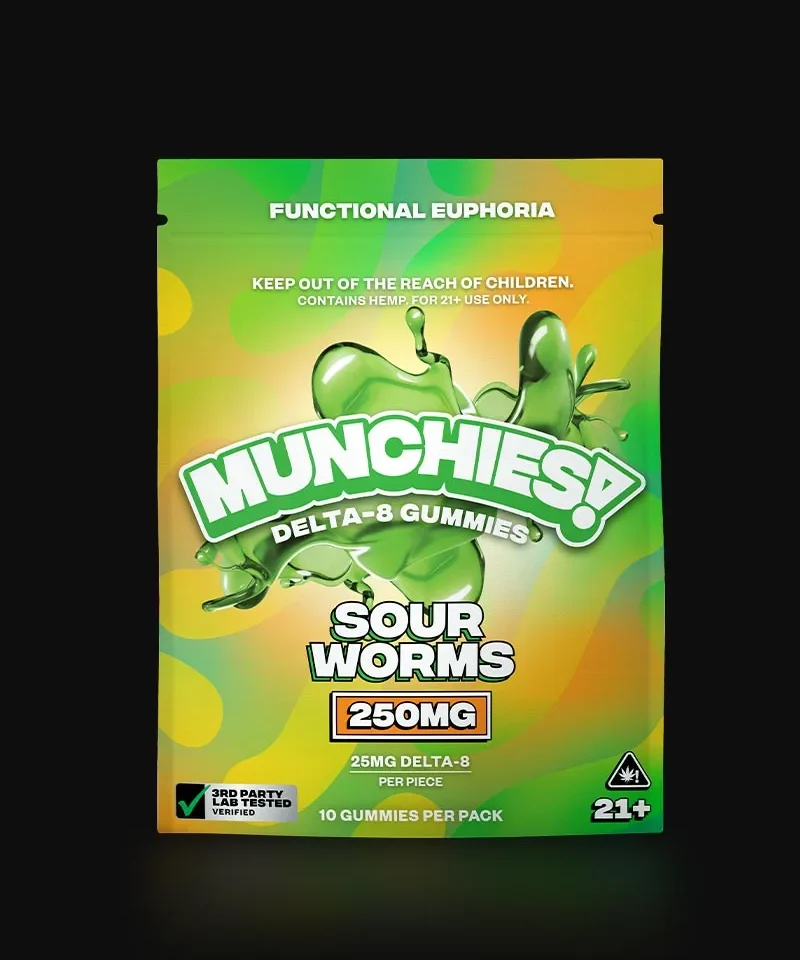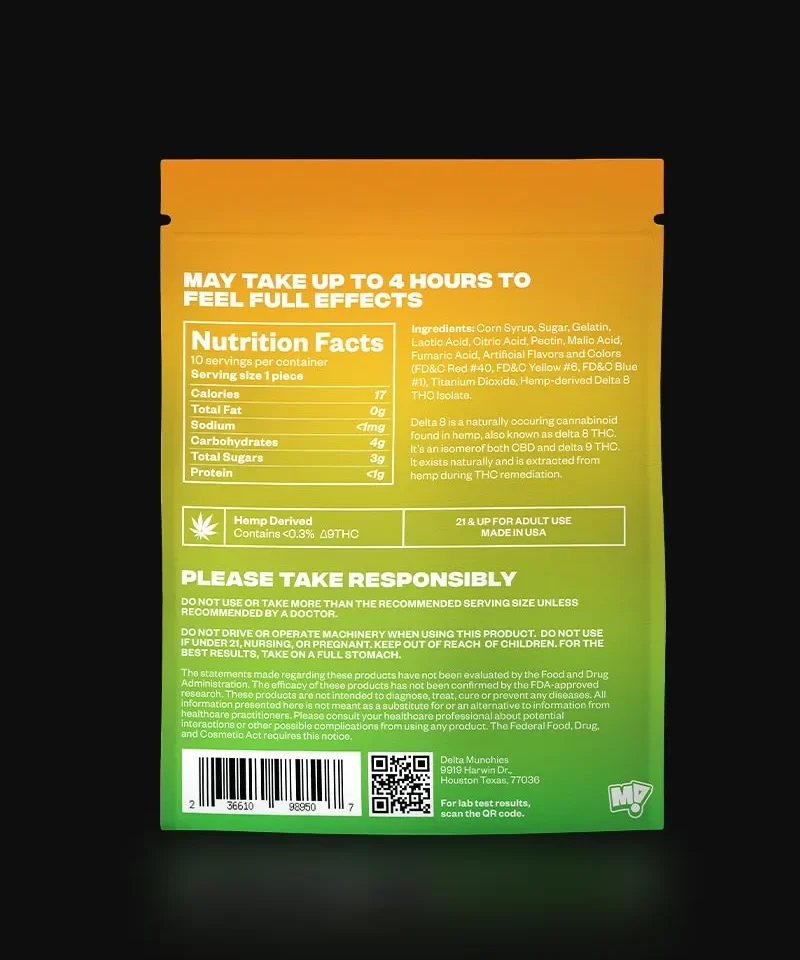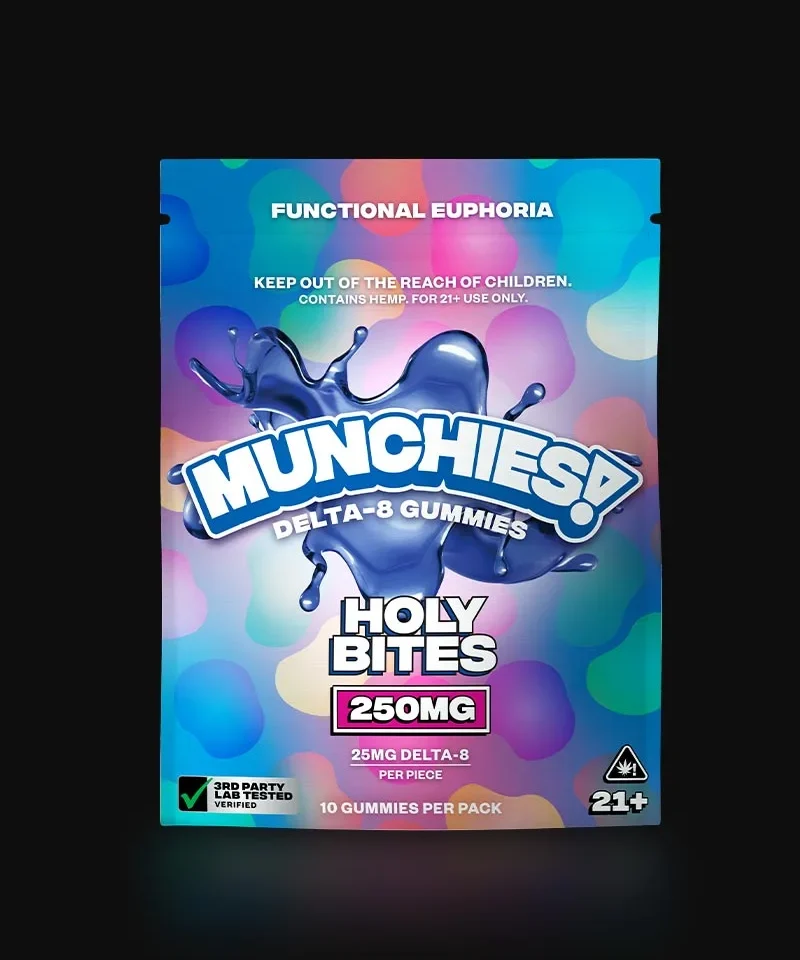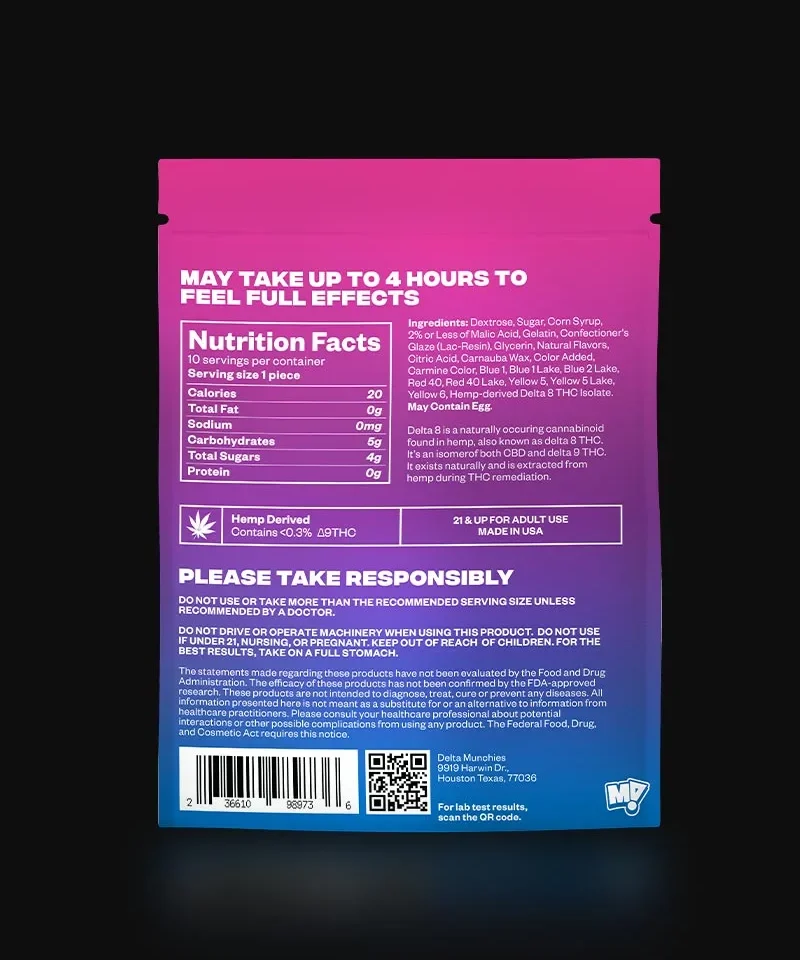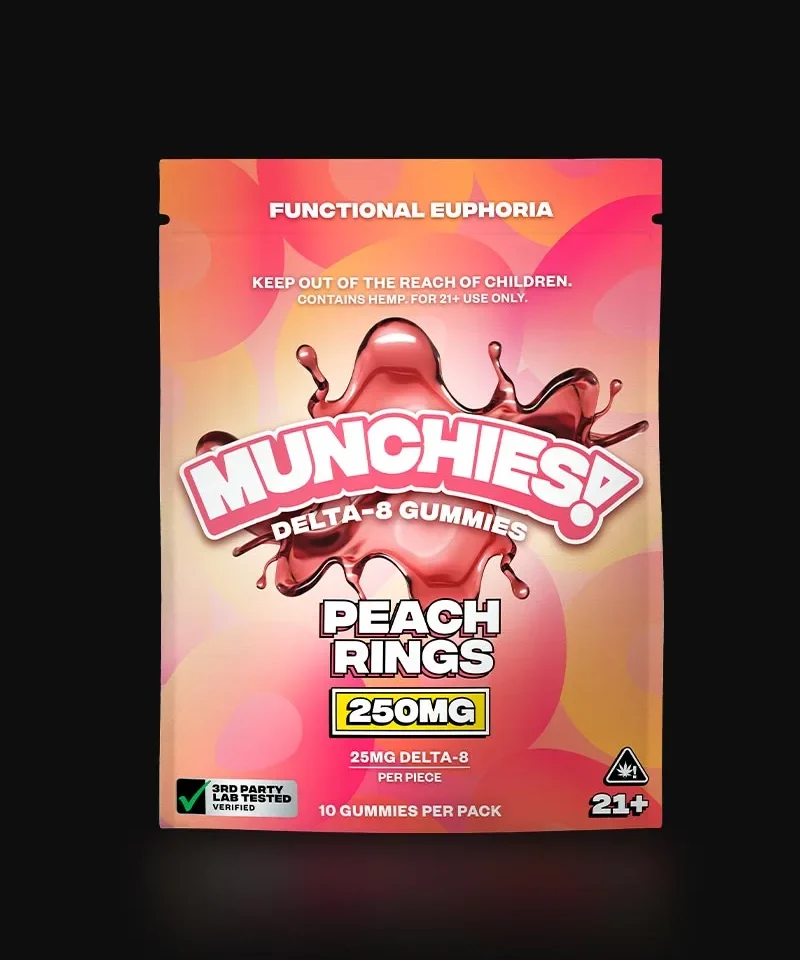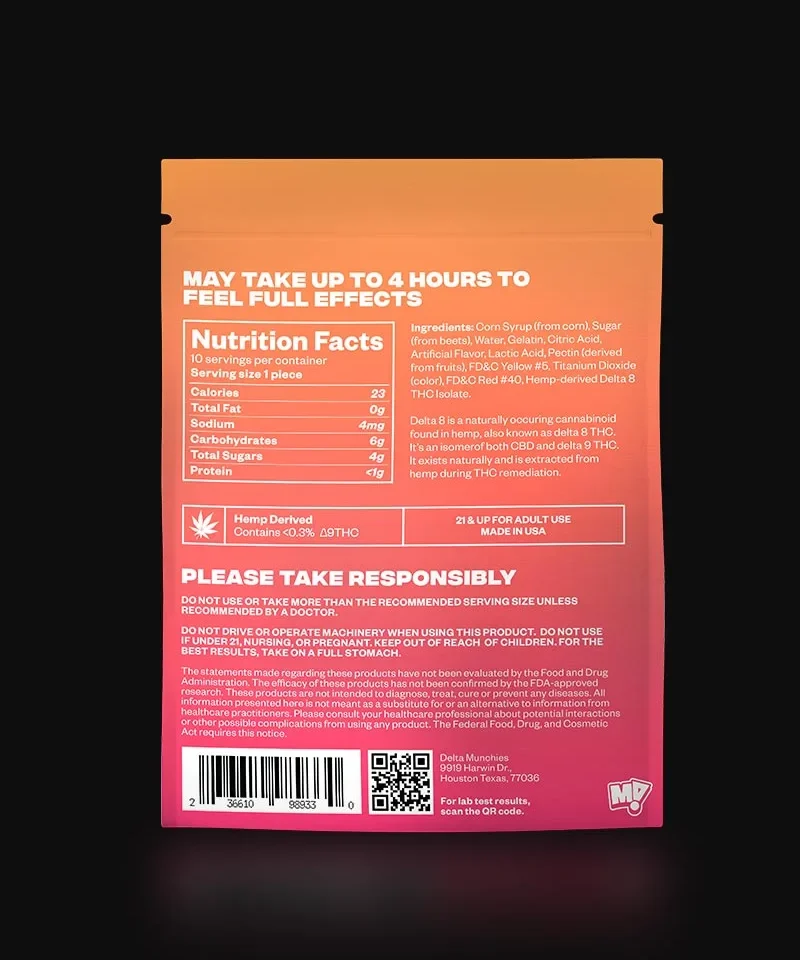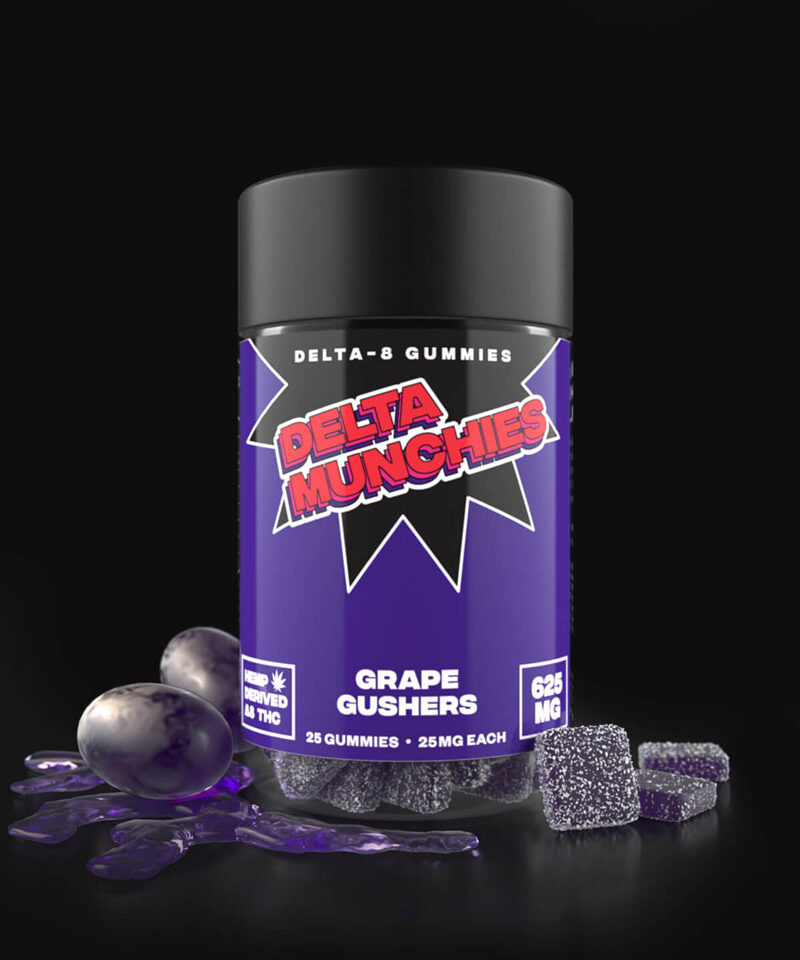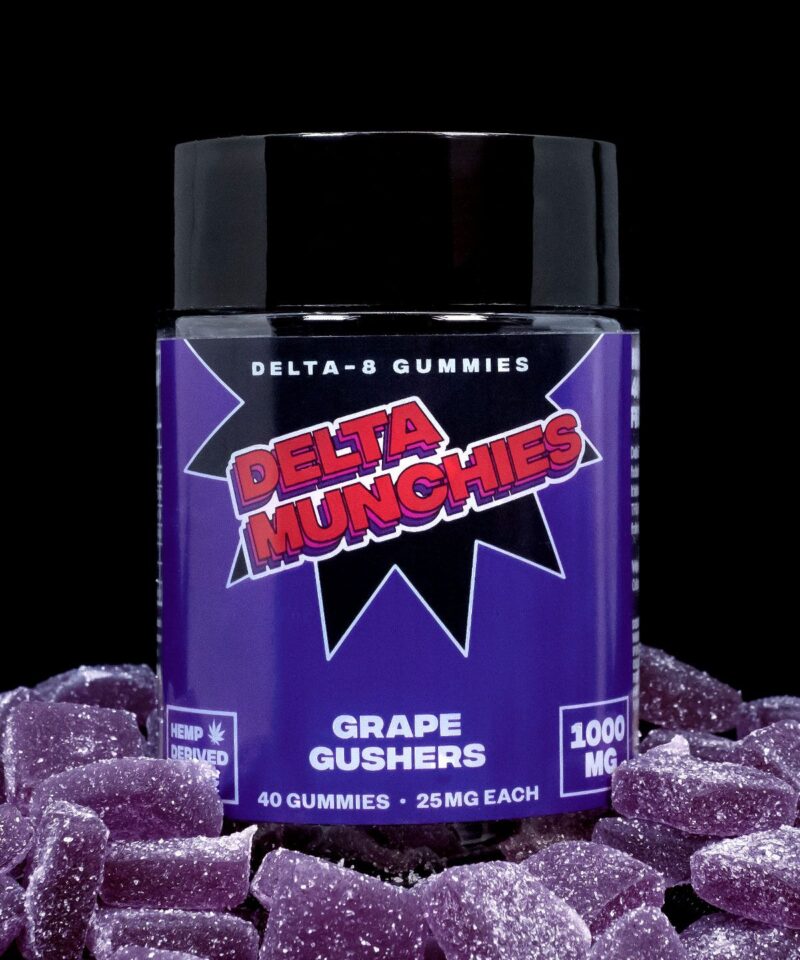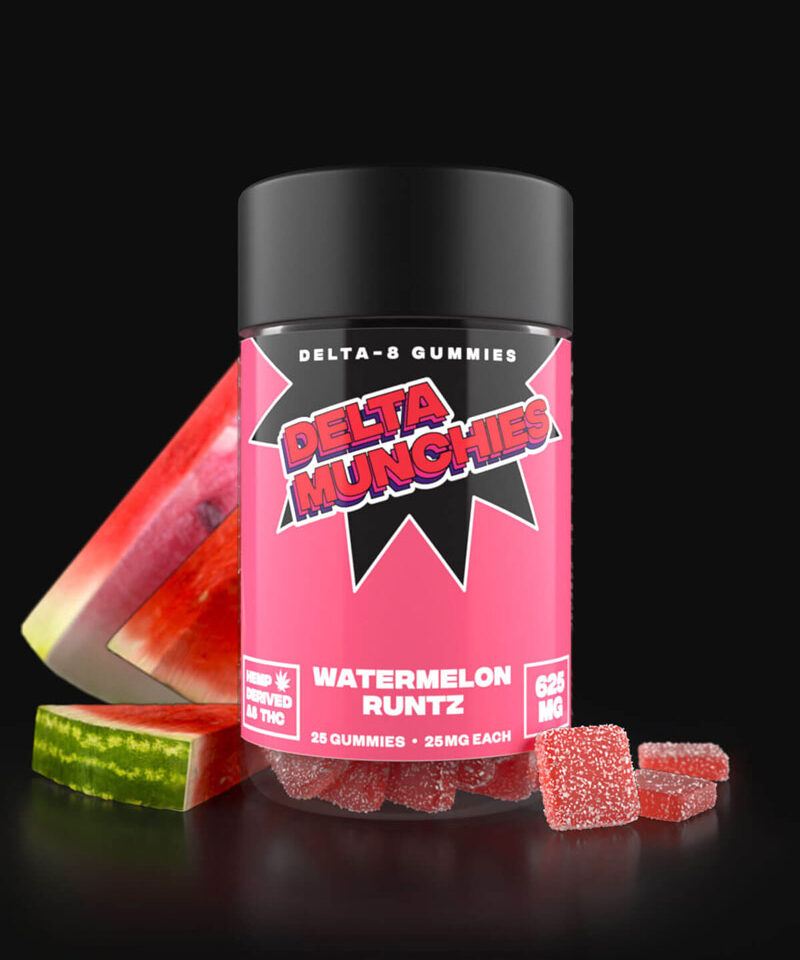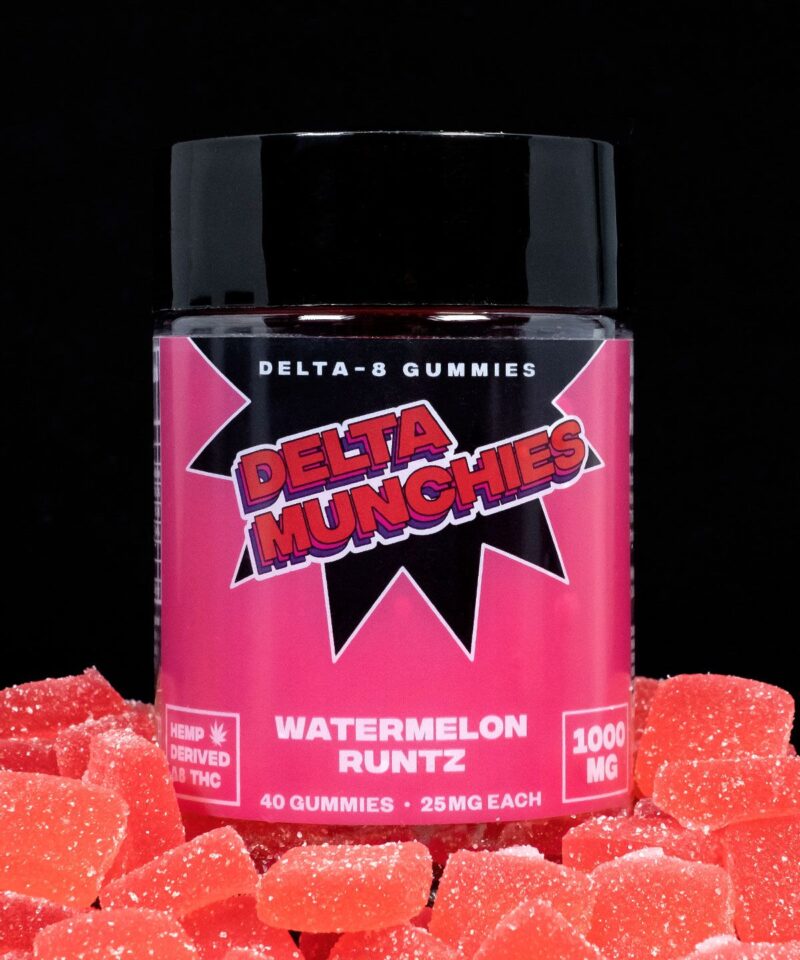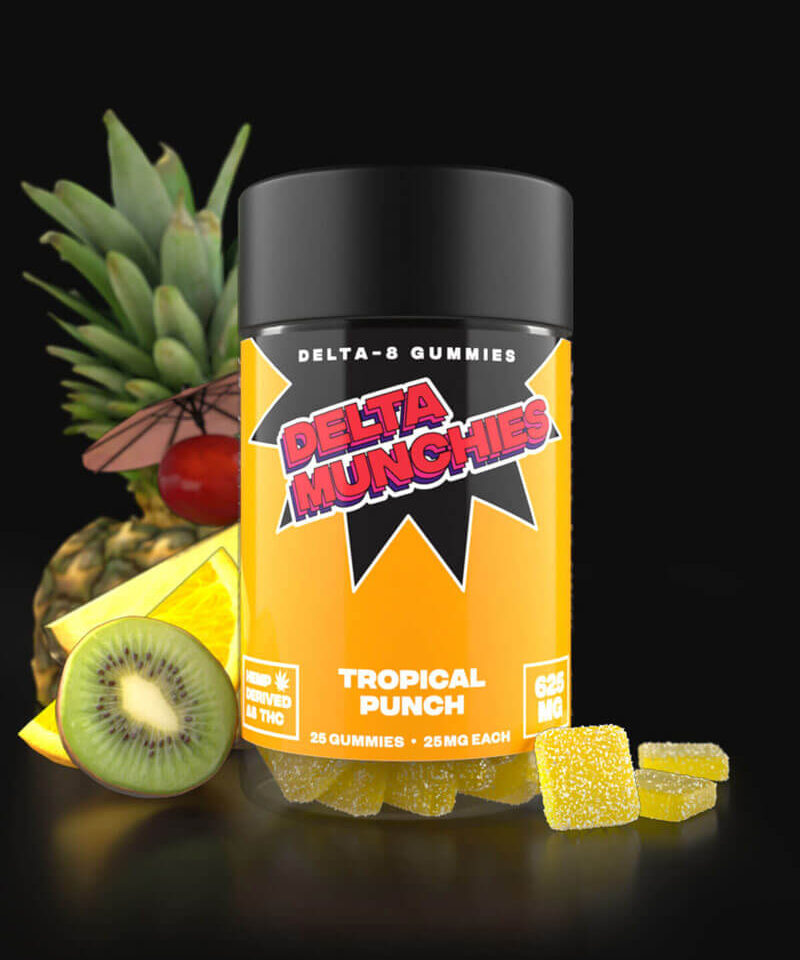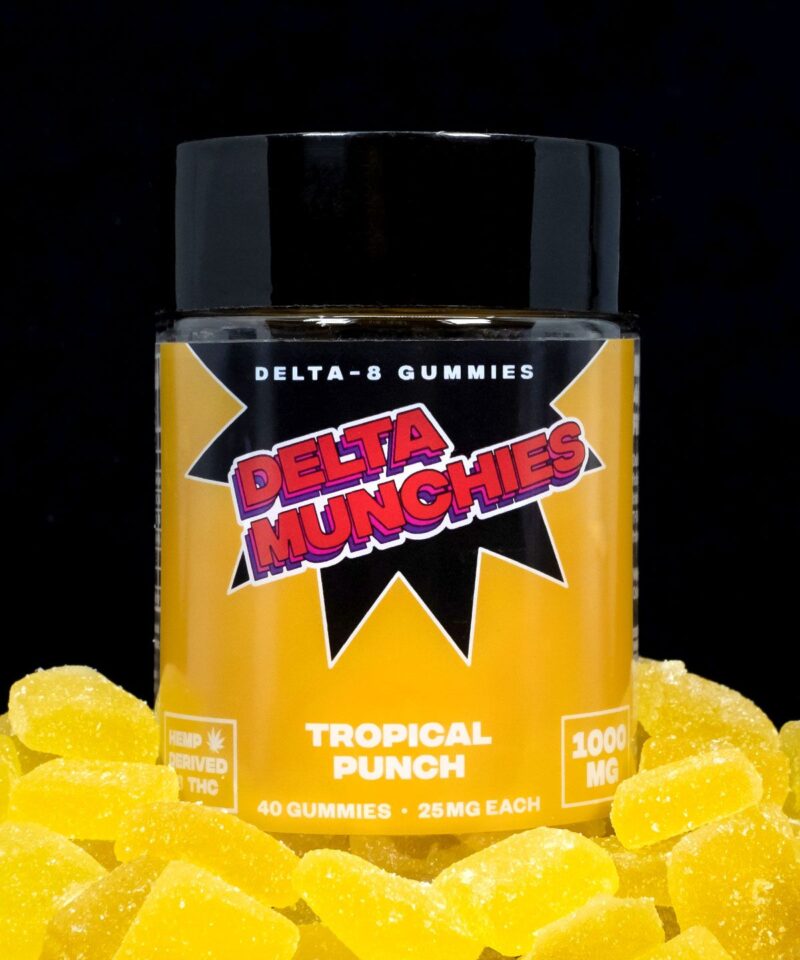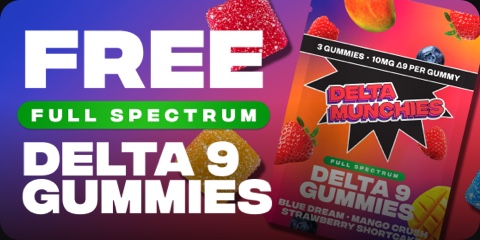Informative
Does Delta 8 Help With Anxiety? A Complete Guide
Photo Courtesy of Unsplash
Within the cannabis community, Delta-8 THC has grown in popularity. Concerns over the prevalence of anxiety have led many cannabis users to explore its potential benefits.
But does Delta 8 help with anxiety, and is it something you should use?
Understanding CBD, Delta-8, Delta-9, and others can be challenging for those new to the cannabis world. We’re going to dive into what you need to know about Delta-8 for anxiety and depression.
Delta 8 THC
Delta 8 THC
Delta Munchies has got you covered with the best in class Delta 8 THC. Check ’em out!
Contents
What is Delta-8?
Before discussing Delta-8 for depression, what is it, and how does it work?
Delta-8 is a cousin of marijuana. Within the CBD market, the demand for Delta-8 products has accelerated. As you already know, the cannabis plant is packed full of cannabinoids. CBD is nothing more than a single cannabinoid. You’ve also got Delta-8 THC and Delta-9 THC. These are already used regularly among cannabis users.
Although not everything is understood about Delta-8, we know that it’s more stable and comes with fewer psychoactive properties. In other words, it’s closer to CBD on the spectrum than the more psychoactive Delta-9 THC.
The chemical structure of this compound comes with a double bond on the 8th atom, hence where it gets its name and why it’s more stable.
To produce Delta-8 THC, it must be extracted directly from the hemp plant. It’s less of a sedative than ordinary THC, which is why many in the community have referred to it as “weed light.”
Consumers of Delta-8 THC say that many gummies, vapes, and soft drinks utilize this molecule because of its effectiveness. With this in mind, it makes sense that there’s a link between Delta-8 and anxiety relief.
Delta-8 THC doesn’t differ much from Delta-9 in terms of how it works. It interacts with the endocannabinoid system by binding to your CB1 receptors. It broadens how many neurotransmitters are available at any one time.
It’s why people who consume Delta-8 are likely to feel less anxious. By improving the brain’s energy levels, anxiety drops. Although not endorsed by government bodies just yet, it’s widely considered more therapeutic than if you take regular THC.
Note that there are also other receptors present in the body. For example, you’ll find CB2 receptors within your digestive and immune systems. Delta-8 is closely affiliated with CB2 receptors and easily binds together with them.
It’s why Delta-8 doesn’t have the same psychoactive properties as other molecules. Your CB1 receptors are present in the brain, so when Delta-8 binds, it’s binding more elsewhere in the body.
If you’re not looking to get lethargic when taking a THC product, Delta-8 is an excellent option because it keeps you functional while offering many of the potential benefits of cannabis.
(Disclaimer: This article is not medical advice. It is based on anecdotal user experience alone. If you are thinking about incorporating cannabis (delta-8 THC, delta-9 THC, or CBD) into your medicinal routine, please consult a healthcare professional. Do not stop taking any prescribed medications without first consulting your doctor.)
Benefits of Delta-8
You’ve likely been hearing a lot about the potential benefits of Delta-8 THC for anxiety and other issues. Truthfully, there’s still a minimal amount of scientific research conducted into it. Studies are still ongoing, but due to the tricky legal position of anything cannabis-related, it’s only now that researchers have been able to study it properly.
Early research has shown that Delta-8 THC has demonstrated that this molecule could provide various potential health benefits. Besides making you feel good, let’s run through some of the exciting prospects this molecule offers.
Neuroprotective Properties
Brain health should concern everyone, especially as you get older. Over time, the brain naturally degrades, but you can halt and prevent this process by keeping your brain active and taking in all the right things.
Some Delta-8 research has shown that it encourages the brain to create Acetylcholine. This compound is a neurotransmitter. In other words, it supports your cognition, memory, and neuroplasticity.
Since Delta-8 THC has almost no notable side effects, it’s not inconceivable that Delta-8 could be used to prevent cognitive decline as people get older. Of course, full disclaimer, research into Delta-8’s neuroprotective properties is at an extremely early stage.
Stimulate Appetite
Are you someone who struggles to work up an appetite? If you’ve got anxiety or depression, you likely know how difficult it’s to stay interested in food. People with serious mental health troubles often find it challenging to keep to a regular meal schedule.
Appetite can also be a problem for anyone being treated with chemotherapy. Cancer patients often suffer from nausea, so it can be difficult to take in and keep down the nutrients they need to battle their disease.
Back in 2004, researchers studied the link between Delta-8 and appetite control. They found that low doses of Delta-8 stimulated the appetite and increased food intake among participants during the trial.
Antiemetic Effects
Delta-8 is so popular because it doesn’t come with the side effects found with other similar molecules. Everyone knows how difficult it can be to function after smoking a joint or eating a weed cookie.
Research from an early 1995 study showed that Delta-8 appears to have no side effects at all. Simultaneously, it’s been known to eliminate nausea.
The results of this study were spectacular. With 480 children undergoing chemotherapy, Delta-8 had a 100% success rate at banishing symptoms of nausea.
Analgesic Properties
It’s no secret that CBD is great for pain relief. Whether it’s a muscle rub or a skin lotion, CBD has long been effective at lessening pain. Delta-8 has also been observed as possessing analgesic properties. The difficulty is discovering how much it reduces pain because everyone experiences pain to different degrees.
Anxiety Relief
Delta-8’s mechanisms show that it could have an impact on anxiety. Since it binds to the CB2 receptors alongside the CB1 receptors, it encourages the body to regulate both pain and anxiety.
Anxiolytic properties help people feel relaxed and less prone to anxiety symptoms. Of course, that doesn’t mean it’s a comprehensive treatment for depression. It’s something that can address the symptoms.
Does Delta 8 Help With Anxiety?
Is Delta-8 good for anxiety? All the evidence seems to suggest that Delta-8 is helpful. If comparing CBD vs. Delta-8 for anxiety, both compounds are effective at removing anxiety symptoms because they function in much the same way.
It all goes back to the endocannabinoid system. Your endocannabinoid system is the cell signaling station of the body. It’s made up of everything from enzymes to cannabinoid receptors. Your endocannabinoid system’s goal is to keep everything in balance — in other words, to maintain homeostasis.
Delta-8 and anxiety treatment have a connection simply because it’s the system responsible for regulating everything from pain to memory to appetite. Any form of elevated stress challenges this balance, which is why so many people feel anxious when experiencing high-stress levels.
As we’ve already talked about, Delta-8 binds to the CB1 and CB2 receptors. Your CB1 receptor is a big player in anxiety. When it’s blocked, you’ll feel more anxious.
So, when a cannabinoid like Delta-8 binds to the CB1 receptor, it creates a bodily response. In this case, the body’s response is an anti-anxiety one.
Based on research from the National Cancer Institute, Delta-8 THC contains the same anti-anxiety properties as Delta-9. The Delta-9 cannabinoid is more psychoactive and isn’t suitable for use while going about your day-to-day life.
Despite the lack of clinical research, it’s fair to say that most people who consume Delta-8 THC products agree that it frees them from their worries, fears, and concerns.
CBD vs. Delta-8 for Anxiety
Most people are familiar with CBD. But have you ever made the mistake of assuming it’s just another word for Delta-8 THC? Don’t worry. It’s easy to get confused because they’ve got similar chemical properties. Many users may even report similarities in how they feel when taking them.
The main differences are the psychoactive effects. So, what are the most common differences between the two?
Feelings of Euphoria
The feelings of euphoria are perhaps the biggest difference of all. CBD is non-psychoactive, so you’re unlikely to feel any immediate potential benefits like this. Delta-8 THC, on the other hand, is a THC product, so you’re most certainly going to feel euphoric when taking these products.
You never feel high when taking CBD because it only connects lightly to the neurotransmitters inside you.
Delta-8 THC has a stronger connection with the CB1 neurotransmitter, so you get a different reaction. While CBD has been noted for supporting people who suffer from chronic anxiety, Delta-8 THC is more effective due to the differences in the mechanism.
Different Potential Health Benefits
The symptoms of anxiety and depression can vary wildly. Both CBD and Delta-8 THC offer different potential health benefits, particularly when it comes to the secondary symptoms of anxiety.
CBD is great at making people relaxed, stimulating their appetites, and helping them to sleep. There’s even limited evidence that CBD can boost memory.
Delta-8 THC also has similar health advantages, which are beneficial for fighting off anxiety. However, the euphoric feeling can shake people out of even the most crippling anxiety.
Like with any cannabis or hemp-related product, your mileage will vary. It depends on where you buy your products from and how much attention has been paid to quality.
Does Delta-8 Help With Depression?
Delta-8 and depression have similar links to anxiety. Figuring out does Delta-8 help with anxiety already leads to the question of whether it has the same impact on depression. After all, everyone gets anxious, but not everyone gets depressed.
Today, about 8.1% of American adults suffer from depression. There are lots of reasons why you might be depressed. It could be a symptom of long-term stress or a chronic health condition.
If you’re depressed, you’ll likely recognize some of the following symptoms:
- Inconsistent Sleep Patterns
Depression may lead to insomnia. Likewise, it can also lead to the exact opposite, where you sleep for most of the day or night. People with depression often keep unconventional schedules.
- Bad Moods
The classic signs of depression. Being anxious, aggressive, irritable, and angry could indicate depression. These bad moods are often unable to be understood by the sufferer.
- Physical Issues
Some people with depression might experience headaches, fatigue, or even digestive issues.
- Behavioral Changes
It’s not uncommon for people who are depressed to drink in excess, experience suicidal thoughts, or start taking on high-risk activities.
- Cognitive Problems
Problems with focus, issues completing basic daily tasks, and delayed responses are signs that depression has significantly impacted the brain.
Anyone who has got any of these symptoms regularly might need professional help. If you’re looking for an alternative to antidepressants, you might find that Delta-8 THC works for you.
The reason why Delta-8 is just as effective at overcoming the symptoms of depression is the exact reason it works for anxiety. It binds to the same receptors and can help to enhance your mood.
Can Delta-8 Be Used as an Alternative Depression Treatment?
This is a big point of contention. Depression could be mild or life-changing. There are also many potential causes to consider when evaluating someone for depression.
Delta-8 THC can potentially temporarily relieve symptoms in many people with depression. On the other hand, it can’t necessarily treat depression.
Treating depression is complex, typically requiring other interventions, like cognitive behavioral therapy. Addressing the symptoms isn’t enough to banish depression, so it’s still recommended that you talk to your doctor if you’re struggling with depression.
Conclusion
Does Delta 8 help with anxiety and depression? Studies have shown that taking it can act as a holistic alternative to traditional antidepressants. With antidepressants and anti-anxiety medication potentially taking up to six weeks to kick in, getting immediate relief with Delta-8 for anxiety could be the best way forward.
The key to making the most of Delta-8 THC is to choose high-quality products. You will also need to think about your personal preferences and find the products that fit your needs. Not every shop you come across will have what you need. Delta Munchies is the real deal, with third-party certified and tested Delta-8 products.
Fight back against your anxiety and check out the finest Delta-8 vapes, delta 8 gummies, prerolls, and more. Discover our latest selection, shop now, and get your Delta-8 delivered right to your door.
(Disclaimer: This article is not medical advice. It is based on anecdotal user experience alone. If you are thinking about incorporating cannabis (delta-8 THC, delta-9 THC, or CBD) into your medicinal routine, please consult a healthcare professional. Do not stop taking any prescribed medications without first consulting your doctor.)


